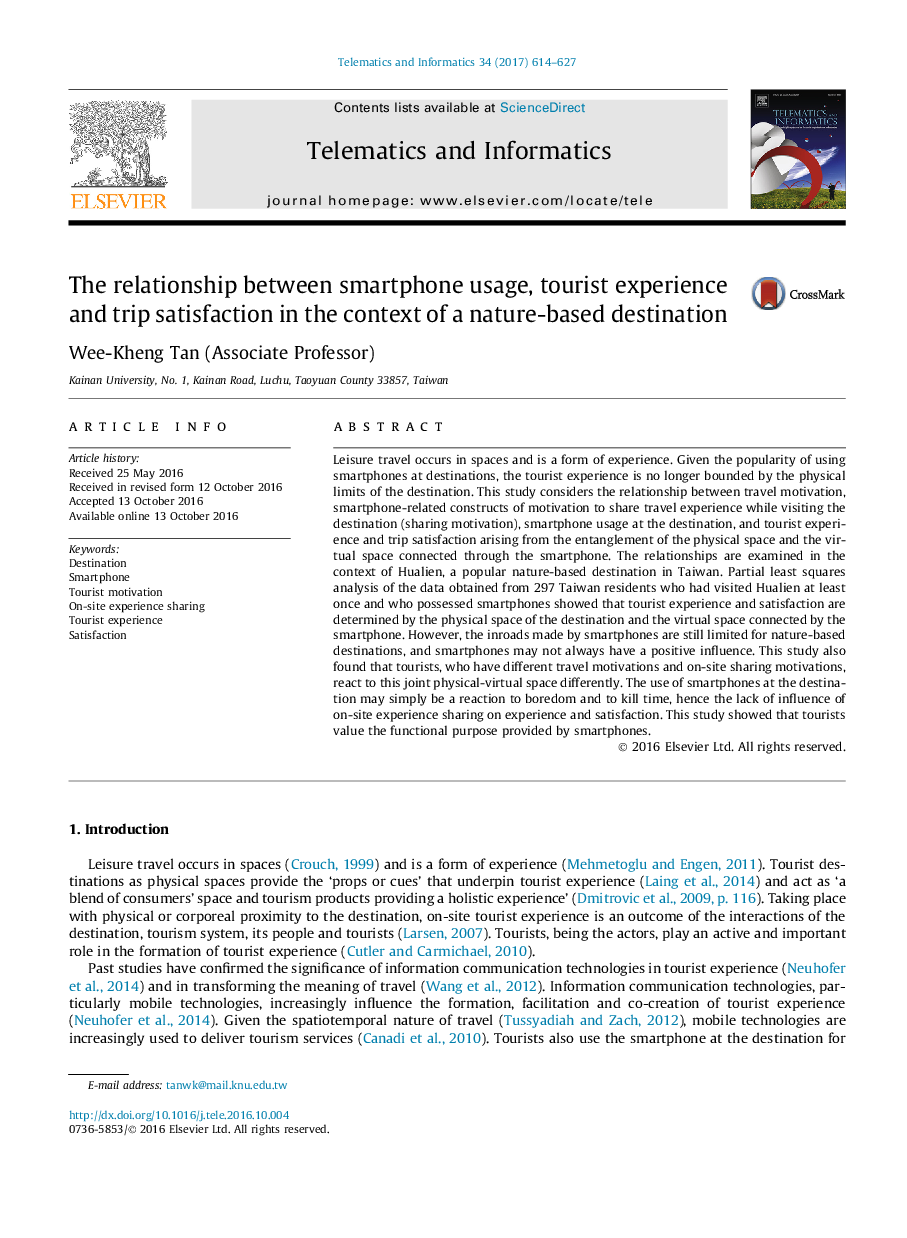| Article ID | Journal | Published Year | Pages | File Type |
|---|---|---|---|---|
| 4957772 | Telematics and Informatics | 2017 | 14 Pages |
Abstract
Leisure travel occurs in spaces and is a form of experience. Given the popularity of using smartphones at destinations, the tourist experience is no longer bounded by the physical limits of the destination. This study considers the relationship between travel motivation, smartphone-related constructs of motivation to share travel experience while visiting the destination (sharing motivation), smartphone usage at the destination, and tourist experience and trip satisfaction arising from the entanglement of the physical space and the virtual space connected through the smartphone. The relationships are examined in the context of Hualien, a popular nature-based destination in Taiwan. Partial least squares analysis of the data obtained from 297 Taiwan residents who had visited Hualien at least once and who possessed smartphones showed that tourist experience and satisfaction are determined by the physical space of the destination and the virtual space connected by the smartphone. However, the inroads made by smartphones are still limited for nature-based destinations, and smartphones may not always have a positive influence. This study also found that tourists, who have different travel motivations and on-site sharing motivations, react to this joint physical-virtual space differently. The use of smartphones at the destination may simply be a reaction to boredom and to kill time, hence the lack of influence of on-site experience sharing on experience and satisfaction. This study showed that tourists value the functional purpose provided by smartphones.
Related Topics
Physical Sciences and Engineering
Computer Science
Computer Networks and Communications
Authors
Wee-Kheng (Associate Professor),
